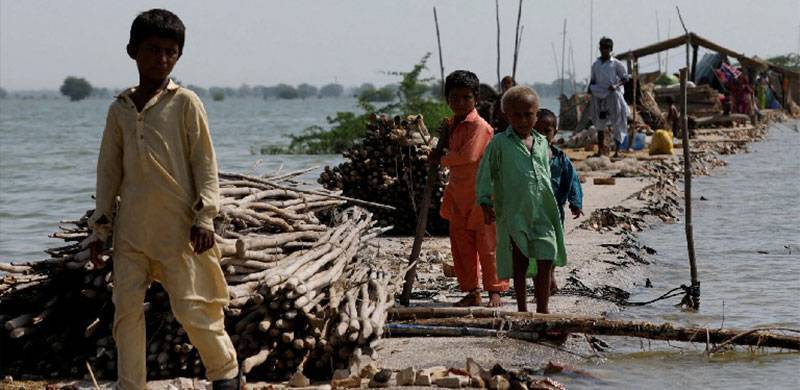
The daily struggles of Pakistanis are being ignored while its leaders focus on power struggles. The country’s biggest worry should be how life is getting harder for its people, not personality conflicts. The problem is that those in charge aren’t paying attention to these everyday challenges as they engage in a Game of Thrones.
According to a recent staff report from the International Monetary Fund (IMF), Pakistan has fallen behind its regional peers with regards to living standards, “underscoring the need for urgent policy correction.” The Washington-based lender stated that “Pakistan has been falling behind its peers in recent decades in terms of income per capita, competitiveness, and export performance. From 2000 to 2022, Pakistan’s GDP per capita grew at an average annual rate of only 1.9%. “By contrast, Pakistan’s peers achieved more than twice this rate: Bangladesh averaged growth of 4.5%, India reached 4.9%, Vietnam 5%, and China a growth of about 7.5%.”
Pakistan is a tough place to live by international standards. Rising prices, the worst in Asia, have made food, gas, and medical care too expensive for many Pakistani families, forcing them to choose between feeding their children and getting needed services. Making things worse, high jobless rates, crumbling roads and buildings, and poor schools have left many people stuck in a cycle of poverty with no way out. Around 95 million people, or about 40% of Pakistan’s population, live below the poverty line. Support programmes for people in need are weak.
On top of all this, massive floods in 2022, attributed to climate change have pushed millions more into extreme poverty, while the government fails to help enough. More Pakistanis are leaving their country than ever before. Many skilled workers are moving abroad because of money problems, leaving banks, hospitals, and big companies short-staffed. Even people with good jobs can’t make ends meet.
Moreover, Pakistan’s population is growing faster than most other countries. This is mainly because of poor family planning, high fertility, low status of women in society, and illiteracy. While having many young people can help the economy grow, Pakistan’s economy is not creating enough jobs to employ this large young population.
A UN report shows that Pakistan’s elite groups - big businesses, wealthy landowners, politicians, and military leaders - receive special benefits worth $17.4 billion, about 6% of the country’s total economy
Beyond low economic growth, measures of health, education, and quality of life show a more complete view of how people live in Pakistan.
Pakistan’s healthcare system needs urgent help. Many hospitals are in poor condition, people can’t get basic medicines, and there isn’t enough money to fix these problems. Half of Pakistan’s people can’t get basic health care, according to the World Health Organisation (WHO). This affects both workers today and children who will grow up tomorrow. The system doesn’t have enough money or resources to help everyone who needs care. Many babies die at birth, and mothers face serious health risks. While nearby countries like Bangladesh and India have gotten better at providing healthcare, Pakistan is still having trouble giving its people basic medical care.
Poor nutrition in Pakistan is another big problem that hurts people’s health and the economy. It affects 40% of young children under five years old, causing slow growth, while 18% are severely malnourished. This serious problem threatens the country’s well-being and future success. These numbers show how many children might not reach their full potential, which means fewer skilled workers in the future and higher healthcare costs for everyone.
Education is key to a country’s growth. Sadly, in Pakistan, many children don’t go to school and those who do often learn in packed classrooms with old-fashioned teaching materials. While nearby countries spend a lot on education, Pakistan risks holding back its young people from becoming future leaders and skilled workers. The government spends only 0.24% of GDP on universities and less than 2% on all education - showing how little importance is given to learning in national planning.
It is an atrocity that the rich and powerful groups in Pakistan take more than they deserve by using their advantages. People continue unfair treatment of others based on social status, and government policies often fail to fix these problems or sometimes make them worse. A UN report shows that Pakistan’s elite groups - big businesses, wealthy landowners, politicians, and military leaders - receive special benefits worth $17.4 billion, about 6% of the country’s total economy.
The declining living standards in Pakistan are not merely an issue of statistics; they represent the lives of real people facing hardships. As we navigate through political turmoil, let’s not forget the core issues that require immediate action. It’s time for our leaders to step up, recognise the urgency, and commit to a brighter future for Pakistan. If leaders don’t change their focus and take proper steps to help meet people’s basic needs, the country could fall into chaos, causing problems that could spread beyond its borders.
Let’s raise our voices and urge those in power to make living standards a priority. The future of the country depends on it.

